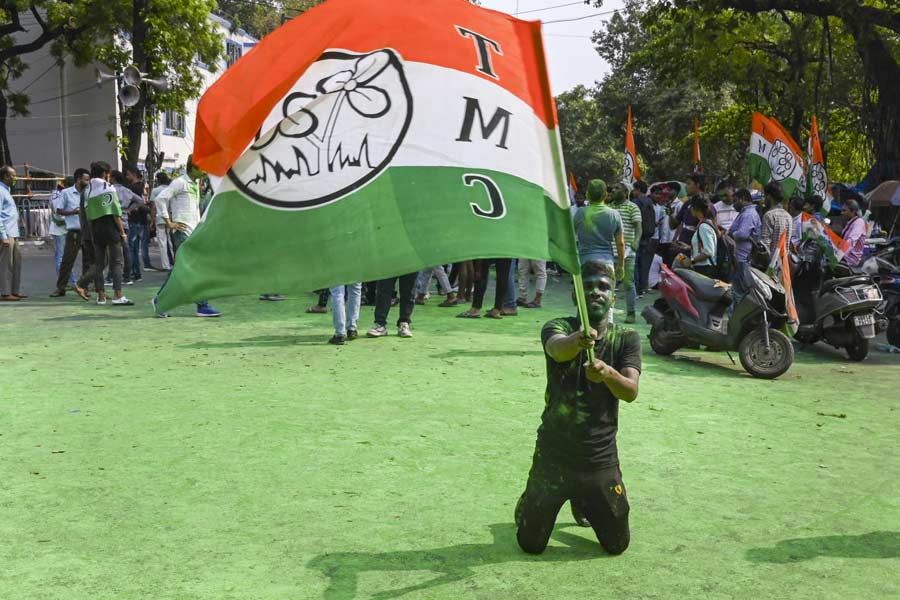People belonging to the minority community helped TMC sweep Muslim-majority pockets in the southern region of West Bengal while the division of their votes facilitated BJP's victories in the northern part of the state, political analysts said on Wednesday.
In a state where minority voters constitute around 30 per cent of the electorate, their influence extends to 16-18 Lok Sabha seats, making them a coveted voting bloc for all parties.
Several parliamentary seats in both north and south Bengal, such as Raiganj, Cooch Behar, Balurghat, Malda North, Malda South, Murshidabad, Diamond Harbour, Uluberia, Howrah, Birbhum, Kanthi, Tamluk, Mathurapur and Joynagar, have significant Muslim populations.
The BJP retained Balurghat, Raiganj and Malda North, riding on the division of minority votes between the Left-Congress combine and the TMC, an analyst said.
"In south Bengal, the TMC, as expected, performed well in minority belts. But in some seats in north Bengal, the party faced tough competition from the Left-Congress alliance for a bigger pie of the minority votes," Political analyst Biswanath Chakraborty said.
In all three seats, the Left-Congress alliance candidates bagged more votes than the BJP nominees' victory margins.
According to poll results declared on Tuesday, BJP’s Kartik Chandra Paul bagged 5,60,897 votes in Raiganj and his nearest rival TMC's Krishna Kalyani got 4,92,700.
Paul won by a margin of 68,197 votes. The Left-Congress alliance candidate Ali Imran Ramz secured 2,63,273 votes.
In Balurghat, BJP's state unit president and candidate Sukanta Majumdar garnered 5,74,996 votes while the TMC’s Biplab Mitra got 5,64,610. The margin was 10,386 votes. The Left-Congress nominee Joydeb Siddhanta polled 54,217 votes.
BJP’s Khagen Murmu retained the Malda North seat by a margin of 77,708 votes, defeating TMC’s Prasun Banerjee. The Left-Congress combine in the segment polled 3,84,764 votes.
A miffed West Bengal Chief Minister and TMC supremo Mamata Banerjee alleged that “the Left-Congress alliance helped the BJP win the three seats in north Bengal”.
The TMC, however, managed to snatch the Cooch Behar seat from the BJP.
The icing on the cake for the TMC, however, was wresting the prized Baharampur Lok Sabha seat from its five-term sitting MP and Congress state president Adhir Ranjan Chowdhury.
Voters of the so-called ‘Congress fortress’ rejected Chowdhury and elected Trinamool Congress candidate and former India all-rounder Yusuf Pathan by a comprehensive win margin of over 85,000 votes.
Owing to Chowdhury’s defeat in Baharampur, which remained among the last-standing perceived Congress fortresses of the state, the Trinamool Congress had its flag grafted and flying from the region for the first time.
Except for the Tamluk and the Kanthi Lok Sabha seats, West Bengal’s ruling party swept the Muslim-majority seats of south Bengal, where minorities voted for the TMC to halt the BJP's advance.
According to minority leaders, Muslims in West Bengal, pivotal in several Lok Sabha seats, were inclined towards the Mamata Banerjee-led TMC, which they see as a credible force, unlike the Left-Congress alliance.
With the Indian Secular Front (ISF) deciding to go solo, efforts to woo minority voters become more challenging for the Left and the Congress, especially with the saffron party capitalising on various polarising issues such as the Ram Mandir and the Citizenship Amendment Act (CAA).
“It would have been better had ISF been with us,” CPI(M) state secretary Mohammed Salim, who lost from the Murshidabad seat, said.
West Bengal boasts the third-highest number of Muslim electorate in the country after Kashmir and Assam.
Of the 42 parliamentary seats in the state, the TMC won 29, the BJP 12 and the Congress one.
Except for the headline, this story has not been edited by The Telegraph Online staff and has been published from a syndicated feed.










